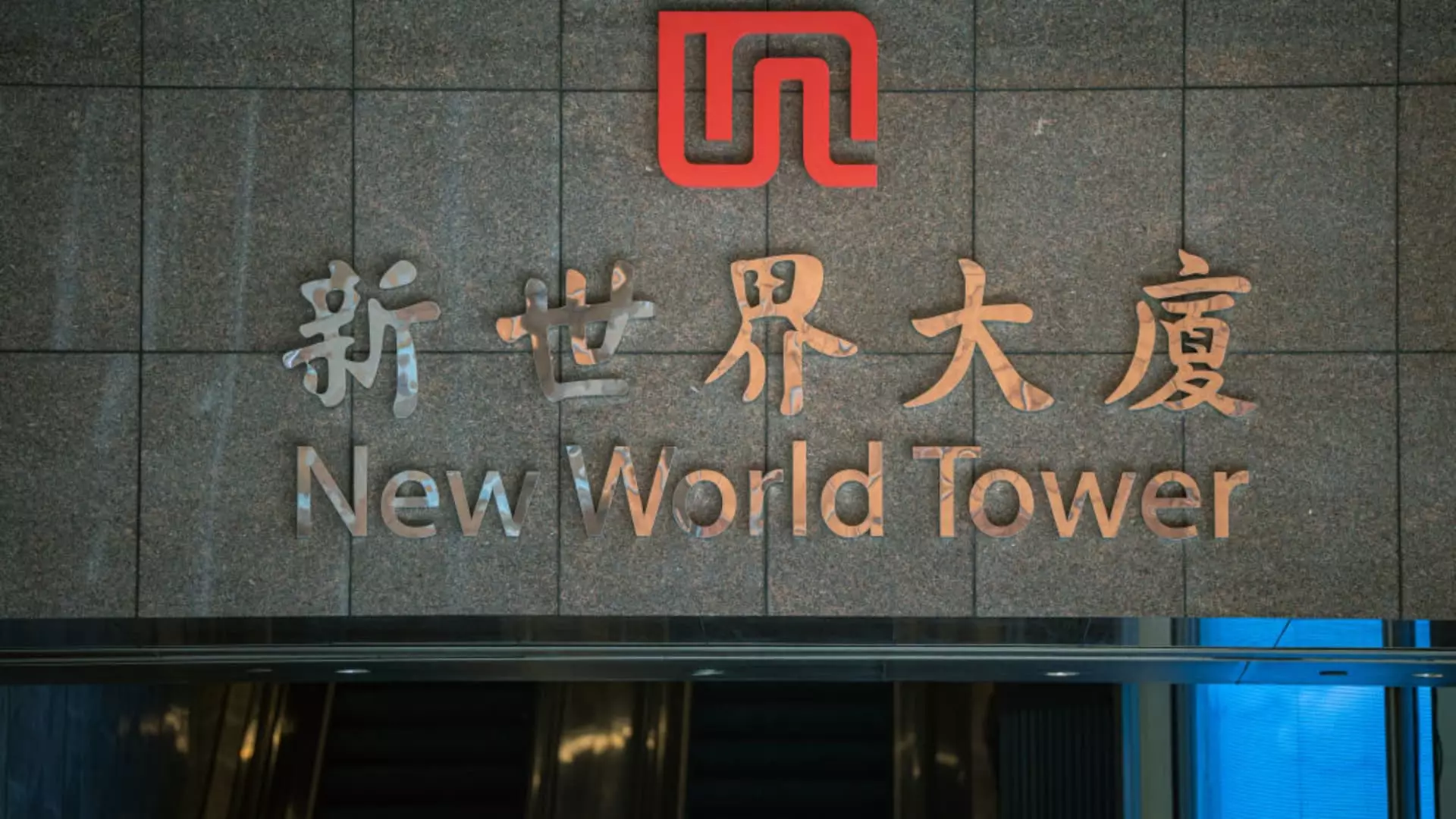The resignation of Adrian Cheng from New World Development marks a pivotal moment in the trajectory of Hong Kong’s prominent development company. Following Cheng’s announcement, which came alongside his intention to engage more deeply in public services and personal commitments, the stock of New World Development experienced a remarkable 23% surge once trading resumed. This dramatic price shift underscores the investment community’s reaction to leadership transitions, which often trigger waves of speculation and sentiment in market performance.
The abrupt change in the executive landscape also introduced Eric Ma Siu-Cheung, the company’s Chief Operating Officer, as the new CEO. This transition is notable, as it indeed represents an unusual departure from the norm of family successors steering these corporations. The introduction of an outsider into such a pivotal role signifies a possible shift in corporate governance philosophies, catering to the idea that diversity in management may lead to improved outcomes, particularly amidst economic adversity.
New World Development’s current predicament is compounded by a bleak financial forecast, revealing expected shareholder losses between HK $19 billion ($2.4 billion) to HK $20 billion ($2.6 billion) for the financial year ending June. This negative outlook has been influenced by several factors including declining sales, significant investment losses, and substantial impairment charges. The company’s challenges reflect broader trends impacting the property market across Hong Kong and mainland China, where high debt levels and reduced consumer confidence remain pressing issues.
According to Alicia Garcia-Herrero, chief economist for Asia Pacific at Natixis, this crisis of confidence underscores the critical importance of solid corporate governance. In her commentary, she emphasizes how reliance on familial ties within management structures may not suffice in volatile economic conditions. When the market faces adversity, it tends to favor leaders who can demonstrate operational excellence and sound management practices rather than merely relying on familial loyalty.
The stock price rally of New World Development is more than a reflection of internal corporate changes; it also signals a broader resurgence in the Hong Kong stock market, buoyed by recent stimulus measures implemented by the Chinese government. With authorities pledging to bolster the real estate market and offering fiscal and monetary support, investor optimism appears to be returning. These measures are critical not only for individual companies like New World but for the economic health of cities where property and real estate play central roles.
It is essential to consider how these developments may influence investor perception moving forward. The shift in leadership could be seen as a fresh lens through which to rethink strategies in an unstable market, while the support from governmental bodies may engender a sense of renewed confidence among investors. Collectively, these narratives—corporate adjustments and governmental backing—could redefine the future landscape of Hong Kong’s real estate sector amidst ongoing challenges.
New World Development’s leadership transition presents a compelling case study in corporate governance and market dynamics, potentially signaling a new direction in managing family-run businesses.


Leave a Reply